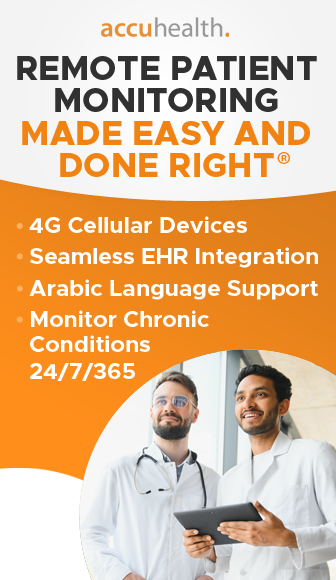Comprehensive Diabetes Care Centers
Diagnosis, treatment, prevention and education…Comprehensive services in one place

The diabetic patient needs comprehensive care for his entire body due to the damage that this disease causes. Hence the need to establish specialized centers that provide comprehensive care to the patient, so that he can obtain all medical services in one place without the need to change doctors. Today, medical facilities and specialized centers are available according to the highest international standards. They follow up on diabetic patients with the most accurate details and give them the necessary guidance and advice when needed, from diagnosis to appropriate treatment protocols, with the necessary advice and guidance and close follow-up.
The Gulf countries and the Middle East region abound with this type of medical centers that have had a great impact in diagnosing and closely following up on diabetes cases while helping the patient avoid serious complications, as he undergoes the most important treatment protocols as well as prevention plans and programs with the aim of providing comprehensive care for diabetic patients. In these comprehensive centers, the diabetic patient finds clinics specialized in examining the retina, limbs, small blood vessels and arteries, kidney examination, treatment of endocrine diseases, diabetes, foot care, nutritionist advice, and other issues that a diabetic patient needs on a regular basis.
Educating the Diabetic Patient
Educating the diabetic patients comes at the core of the comprehensive care centers’ concerns because this disease will accompany him throughout his life and he needs a comprehensive briefing in which the patient knows about the type of this disease, its complications, how to take care of himself and his diet, and control his blood sugar level.
These centers provide educational meetings with specialists that give the patient the necessary information about how to cope with the disease for his sake and his family, whether through individual meetings or lectures that come as part of educating the diabetic patient.
Health education is a fundamental step for the success of all treatment elements and guarantees the implementation of the treatment program while adhering to it as a daily routine. When diagnosing diabetes for the first time, the patient will be afraid and lost; he will also have many questions about how to live with this disease, and here comes the role of patient education, as these centers provide psychological and cultural support, in order for him to feel that he is not the only one affected by diabetes, but there are millions of people suffering from it, and most of them lead a normal life.
Educating type 2 diabetes patients is based on the importance of losing weight, increasing exercise, and learning various ways to achieve this. As for type 1 diabetes patients, education means that the patient learns about diabetes, its causes, how to live with treatments for this type of disease and integrate them with his daily life and regular activities, in addition to having the skills to face the possible emergency complications such as hypoglycemia.
Diabetics need a lot of education and awareness in order to be able to adapt to all aspects of life. Diabetes is a chronic disease that will stick to the patient throughout his life, which may affect the health, psychological, social and economic aspects of the individual.
But, what are the most important medical services that diabetics need?
Endocrinology and Diabetes
Diabetes is a disease affecting the endocrine system that secretes hormones, controls growth and reproduction, and regulates the work of every organ in the body. Diabetes occurs when the pancreas does not produce enough insulin or cells become insulin-resistant and unable to convert carbohydrates into usable fuel.
The role of the endocrinologist and diabetes specialist is to diagnose this condition and give the patient the appropriate treatment after determining the type of diabetes and its associated diseases. Endocrinologists treat diabetes with drugs that reduce blood sugar levels, along with diets that are complementary to drug treatments, to contribute over time to controlling the disease. At the Comprehensive Diabetes Centers, patients receive high-quality patient care that includes food services and medical nutrition therapy.
Retina Examination
The retina is probably the most affected organ by diabetes, as diabetes complications are among the major causes of blindness in this group of patients. Hence, doctors focus on the necessity of periodic retina examination, as this plays an essential role in the early detection and follow-up on any defect so that it does not worsen with age.
In such comprehensive centers, the patient does not need to wait or search for a suitable ophthalmologist; the follow-up team will quickly refer him to the appropriate doctor. We should emphasize that even if the patient does not have any visual disturbances and his glucose levels are within normal limits, the damage may have started without the patient realizing because the effects of diabetes begin silently to cause severe damage to the retina over time.
Patients who suffer from type 2 diabetes and do not have retina problems, must undergo an initial preventive examination upon diagnosis of the disease, followed by annual examinations to assess the condition. As for patients with type 1 diabetes, initial examinations must begin five years after the diagnosis, and must be done annually after that. If there are any retina problems, the ophthalmologist recommends further visits to monitor the problem and treat it.
Foot Care
Diabetic neuropathy is a type of nerve damage that can occur if you have diabetes. High blood sugar can injure nerves throughout your body. Diabetic neuropathy most often damages nerves in your legs and feet. Depending on the affected nerves, diabetic neuropathy symptoms can range from pain and numbness in your legs and feet to problems with your digestive system, urinary tract, blood vessels and heart. Some people have mild symptoms. But for others, diabetic neuropathy can be quite painful and disabling.
Nerve damage can make you lose feeling in your feet, so even minor cuts can turn into sores or ulcers without your realizing it. In severe cases, an infection can spread to the bone or lead to tissue death. Removal (amputation) of a toe, foot or even the lower leg may be necessary.
Comprehensive care centers provide specialized doctors to examine the foot and the arteries of the legs to see if there is a risk that wounds may form in the foot before they occur and the possibility of performing surgeries to widen the arteries or even implanting and connecting arteries to the affected part of the body while taking drugs to help improve blood circulation inside the blood vessels.
Diabetes and Hypertension
There is a close relationship between diabetes and kidney disease, as research indicates that about 50-60% of diabetics develop hypertension. High blood pressure and type 2 diabetes both occur for the same reasons, and include obesity and cardiovascular disease.
Comprehensive Diabetes Care Centers provide the necessary advice and guidance to control hypertension and diabetes through drug treatments in the first place, and then urge the patient to make lifestyle adjustments and consume the right healthy food while exercising regularly, which contributes to lowering blood pressure and help control blood sugar level, in addition to quitting smoking, as these steps have an effective effect on treatment success and long-term control of the disease. The doctor prepares a treatment plan that suits the patient’s condition, who in turn remains in constant contact with his doctor.
Cholesterol and Heart Disease
Diabetes is one of the main causes of heart disease, especially coronary artery disease. The ability of the body to secrete enough insulin decreases in diabetic patients, or the insulin that is produced is not utilized. Since the cells cannot enter glucose, it accumulates in the bloodstream and damages the small blood vessels in the kidneys, heart, eyes, or nervous system. The problem with diabetes is that with time, it impedes the work of the large blood vessels that irrigate the heart, neck or legs, as fat accumulates on the artery walls and this worsens with high blood pressure, smoking or consuming a fatty-rich diet. It worsens with time, and the patient develops hardening of the arteries or clots.
The causes of heart disease among diabetics are that it raises the level of cholesterol in the blood and increases fat accumulation of fat in the heart vessels and arteries, which leads to the development of atherosclerosis causing heart attacks and strokes. Diabetes also causes insufficient blood supply to the heart, which causes the heart to be unable to perform its normal functions. Specialists provide comprehensive healthcare services so that the patient’s vital functions and organs are closely monitoring.
Diabetes and Obesity
Obesity is one of the factors that cause type 2 diabetes, and statistics indicate that 85% of people with diabetes suffer from excess weight. Excessive food intake means giving the body more calories and fats that cannot be processed simultaneously, which signals insulin receptors not to respond to it.
This leads to a rapid release of sugar in the blood, which leads to an increase in the blood sugar level and over time the insulin inside the body won’t be able to maintain the blood sugar level, so insulin resistance occurs and cannot perform its role efficiently, which reduces glucose absorption and thus, increasing the blood sugar level. Prevention is highly possible once you get rid of excess weight, through physical activity and a healthy diet that limits weight gain.
The goal of this type of specialized centers is not limited to treating obesity and weight loss, but also includes developing the health aspect and reducing the risks that threaten the overweight patient. Therefore, it is necessary to focus on weight management by providing patients with comprehensive, multidisciplinary, long-term healthcare, as this plays a role in controlling blood sugar level and keeping it within normal levels.
Nutrition Experts
A special diet for each diabetic patient is the first step that must be adopted by a nutritionist in order to reduce the number of calories as a start to get rid of the extra kilograms and overcome obesity and thus successfully control diabetes. The experts stress the need to follow an appropriate healthy diet and not follow a crash diet that leads to rapid weight loss. Fast food must be avoided and should be replaced with healthy foods such as fruits, vegetables, whole grains, legumes, lean meats, dairy products, fish and poultry. You should also choose nutrient-dense food instead of calorie-rich food, and avoid trans fats, sugary foods, soft drinks and processed foods. Nutritionists recommend exercising as much as possible to make the diet more efficient. Sport is an essential part of controlling diabetes and fighting obesity, in addition to drug treatment under the supervision of a specialist.















